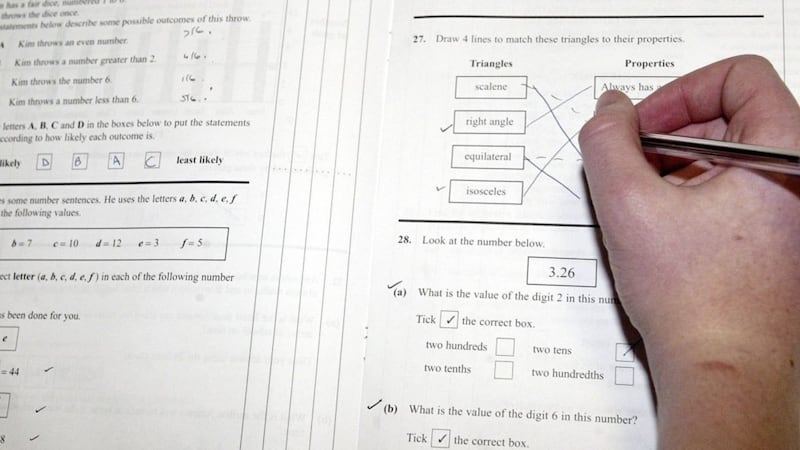WHEN the AQE and GL transfer assessments were introduced in 2009, there was concern that the use of “unregulated” tests would result in widespread legal cases against grammar schools using academic selection criteria. This litigation did not materialise because the schools carefully considered how the tests could be conducted fairly for all applicants.
I have been through these admissions processes as a lawyer advising grammar schools, but also as a parent of children who took both tests, so I am acutely aware that Year 8 transfer is very stressful even in ordinary circumstances. Parents need to know in advance how the admissions process will affect their children and that all will be treated fairly.
The abandonment of the AQE and GL tests was a sensible decision, but the late timing has created a situation where schools are now re-drafting admissions criteria and many parents are still in the dark as to what factors will influence the placement of their children this year. There is a legitimate concern that this year could see difficult litigation around school admissions and a surge in appeals during the summer.
Every school must publish its admissions criteria before February 2. They have relative autonomy in setting these criteria, which often vary widely from school to school. For popular schools, there are always disappointed children, which is why parents are encouraged to apply to several schools on the transfer form. Navigating the process can be difficult for parents.
Academic selection essentially requires every applicant to be ranked based on ability. The ranking process must be legally robust, making allowance for children who underperformed for genuine reasons such as illness, or who couldn't sit the tests. That is why it is very difficult to see how a reliable ranking of applicants could be fairly produced in the absence of either the AQE or GL test.
Several commentators have suggested that schools could still try to use some form of academic selection this year, using transfer test practice papers, teacher information and results from standardised tests. I can't see how any of these approaches could possibly result in fair and consistent outcomes.
Practice papers do not represent a reliable means of ranking the children, as they are not conducted in the same way by schools and many children will have seen the questions before. How can a grammar school weigh up the views of teachers regarding children coming from different classes and different schools?
Standardised tests from P5-P7 have been mentioned as a potential solution. Due to Covid-19 many children have not been tested at all in P6 or P7. English and maths assessments are not conducted uniformly in schools or with the purpose of using them to rank children for transfer. I expect that data being used in this way, without advance notice, would be subject to legal challenge. The education minister has acknowledged that using primary school information could be “fraught with difficulty”.
Apart from running their own entrance tests, which would not be advisable in current circumstances, there is no obvious way of schools operating a process of academic selection which is fair to every child.
In my opinion the prudent approach is to leave academic criteria out of the process for one year only. It is hard to imagine a more reasonable justification than the Covid-19 pandemic. Attempting to admit children on the basis of previously untested, ad hoc methods of selection, will be difficult to administer, legally problematic and more importantly, would create further stress and uncertainty for the children.
The focus will then turn to the admissions criteria which will determine the places. Some will seek to prioritise children who had registered for the AQE or GL tests. It is the other criteria that will effectively determine who gets in though. Most schools use a combination of sibling, eldest child and feeder schools anyway. These criteria are not controversial. I certainly agree that using old school ties or relationships with staff members should be avoided. It is not uncommon for final places to come down to a random tie-breaker.
It is however unrealistic to expect that one standard set of admissions criteria are used by all schools, especially where many schools have already published their processes. The department's own guidance recognises that different criteria may be relevant to different schools.
While these are unprecedented times, using an untested process is very likely to result in many appeals and legal challenges. That would only make this worse for all children and the credibility of the schools.
:: Joe Moore is Managing Director of OiReilly Stewart Solicitors







